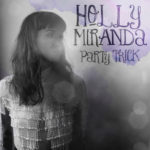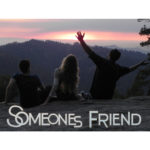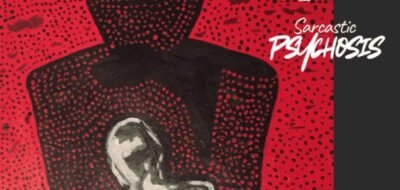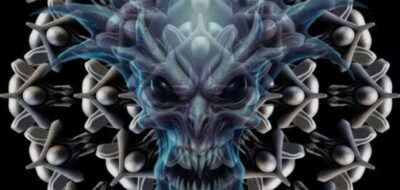It’s hard not to fall into a deeply existential state of mind after watching the video for “Beautiful Blue Sky,” rock quartet Ought’s latest single from their sophomore album Sun Coming Down.
Alongside movement artist Matt Drews, the Montreal-based group have managed to create an almost 8-minute long performance piece that seems nonsensical at first, showing a monotonous motion sequence that is almost too “normal” to be considered interesting.
Yet as Drews’ poignant isolations mirror the soft rhythm of the opening riff, acting as the video’s pulse as he wanders through a dark neighborhood, a familiar glimpse of melancholy and dejection peeks through. The look in Drews’ eyes as he lays on an illuminated bed, intently staring at the light with both an empty and thoughtful presence, is one that is shared by those who are lost within the crevices of life.
Ought Builds Layers of Sound, Layers of Emotion
Lead singer Matt May’s monotonous, almost spoken vocals repeat the same variation of lyrics over and over again, only adding to the strenuous cycle that is unfolding right before our very eyes. It is almost suffocating to hear the same, tiring questions: “Well, how’s the family? How’s your health been? How’s the church? How’s the job?”
There is a frenetic build up that accompanies this excessive repetition, starting first with the addition of simple harmonic sequences and continuing with May’s increasing tonal urgency. And suddenly — the tension is dropped as the chorus is introduced, easing the desperate need to find answers to the questions being thrown at the audience.
“I’m no longer afraid to die,” sings May, completely changing the track’s discourse. He continues with, “Cause that is all that I have left / And I’m no longer afraid to dance tonight / Cause that is all that I have left,” reassuring listeners that it’s all going to be okay — whatever “it” is.
The lyrical content is by far one of the song’s strongest factors; it adds so much depth and meaning to the simple instrumental. Both sarcastically normal and blatantly critical, Ought’s words speak volumes on societal pressures and inner turmoil.
“Clarity, balance, and happiness can be the direct result of movement and breath,” said director Bobby McHugh, “while our obsession with development, consumerism and frustration with the banalities of our everyday experience can cause feelings of nihilism and depression that at their extreme can render us immobile and constrained. In this video I tried to weave together two dreamy, surreal storylines that reflect these two competing states of being.”
At the 6-minute mark of the video, it is now dawn. Drews appears to have wandered through his neighborhood all night long, ending his journey in a park pathway amidst blooming cherry blossom trees and lush grass. The audience is mesmerized by his fluid movements, inducing a momentary feeling of self-reflection.
Stripped of the words, the relaxing instrumental holds so much emotion and variation in its array of build ups and decrescendos that it can stand on its own. There is hope lurking in the air as the track’s riff gets softer, slower. The elongated guitar notes carry out the final moments of realization as the camera shifts to a wide shot of Drews.
And then just as quickly as it came, the journey ends and the screen fades to black.









